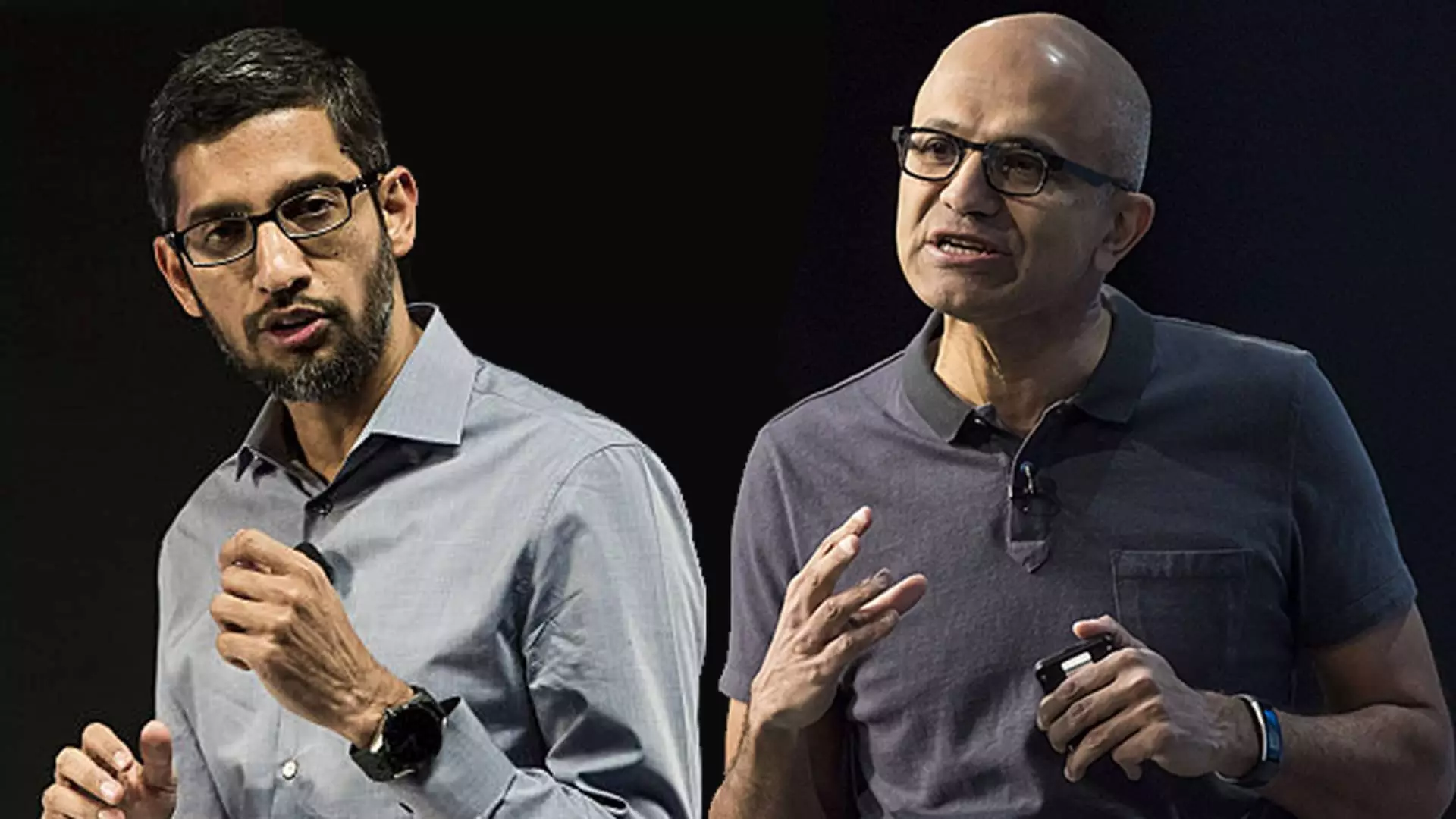In the ever-evolving landscape of technology, the rivalry between industry giants Microsoft and Google has taken a new, aggressive turn. This latest confrontation spotlights not only their intense competition over cloud services but also raises significant questions regarding corporate ethics and regulatory practices. Microsoft recently leveled serious allegations against Google, alleging that the search engine behemoth has resorted to utilizing “shadow campaigns” aimed at tarnishing Microsoft’s reputation with European regulators.
In a public statement made by Microsoft’s lawyer Rima Alaily, it was claimed that Google hired an advisory firm, DGA Group, to orchestrate a coalition purportedly representing European cloud providers. Alaily argued that this initiative, dubbed the Open Cloud Coalition, is a façade created to discredit Microsoft and mislead both the public and policymakers about its cloud services. According to Alaily, the group’s formation and its stated goals mask Google’s deeper intentions to undermine Microsoft’s position in the cloud market.
What makes this situation particularly noteworthy is how such campaigns, if proven true, could undermine trust in market participants and instigate a broader discussion about the lengths to which companies will go to maintain or advance their competitive edge. Microsoft’s claim suggests that rather than openly competing on the merits of their respective technologies and services, Google might be opting for underhanded tactics to sway public perception and regulatory actions.
The rivalry between Microsoft and Google extends beyond mere cloud services into the realms of online advertising and productivity software. Both companies are vying for dominance in a market that is not only lucrative but also highly scrutinized by regulators in both Europe and the United States. Notably, Google is navigating its second antitrust trial in the U.S., a situation that has heightened its sensitivity to regulatory responses.
This competitive tension has resulted in accusations and counter-accusations, with Microsoft pointing to a long history of anti-competitive practices allegedly utilized by Google. For example, Alaily’s post referenced Google’s previous attempts to manage public perception through funded organizations, a tactic that suggests a strategy of obfuscation rather than straightforward competition.
Importantly, this current skirmish can’t be viewed in isolation. Google’s accusations against Microsoft regarding licensing practices are part of a broader narrative of regulatory scrutiny that has enveloped these industry titans. In September, Google announced its intent to file a complaint with the European Commission, alleging that Microsoft’s licensing practices regarding Windows Server are unfair—an escalation that reflects both companies’ deep entrenchment in ongoing legal battles.
Microsoft, on its part, has defended its practices vigorously, claiming that its cloud services offer significant savings—up to 36% less than using competing services like Amazon Web Services. This assertion underlines a classic marketing approach: demonstrating value to attract customers, while countering claims that the company engages in anti-competitive behavior.
The unfolding drama between Google and Microsoft brings to light significant concerns regarding the ethics of corporate competition and the accountability of big tech firms. As they grapple for market share in the cloud industry, the potential for misinformation and underhanded tactics is immense. Microsoft’s allegation against Google highlights the necessity for stringent oversight and transparency in such campaigns, aiming not just to regulate market behavior but to protect the integrity of the competitive landscape.
In a technology-driven world where the lines between competition and collaboration increasingly blur, the calls for fair play must grow louder. Stakeholders, including consumers, regulatory bodies, and the tech industry at large, must remain vigilant and demand accountability from these companies as they navigate their interests in a complex and highly scrutinized market. The outcome of this battle might not only shape the future of cloud computing but could also set precedents for ethical practices within the tech industry itself.


Leave a Reply